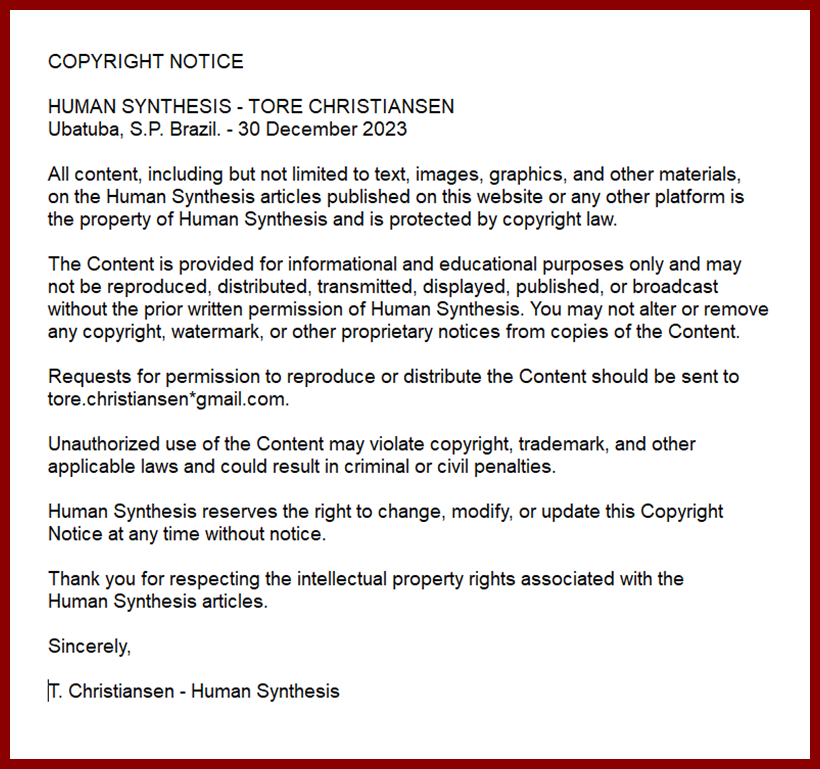The Putin-Trump meeting in Alaska is about much more than the Ukraine war.

By derimot*no - Knut Lindtner - August 17, 2025
This article was written before the recent meeting in Alaska, but I think the content gives a comprehensive picture of what the meeting was about. The US leadership is beginning to understand how far its own powers actually reach.
It cannot continue with propaganda games and an inflated self-presentation that inevitably shrinks into infinity. Sooner or later, reality will catch up with it. First, the US has no weapons to send to Ukraine. Industry has moved to China (and elsewhere to the East), and what is left has limited capacity.
The shirt doesn't reach the knees, no matter how you pull it. The country has an enormous debt that threatens the entire social structure. And even if some European countries, like Norway, are willing to pay to keep the Ukraine war alive, this is only a small thing compared to what is really needed.
The threats against other countries are not working – and some are now responding in kind. Not the EU, of course, which acts just as obediently as Norway in the role of vassal. But vassals are not friends, they are subjects. The US leadership, on the other hand, needs real friends, and it may soon turn out that Russia is such an actor. Russia has great opportunities for economic development (also for US industry), and in the Arctic, the US and Russia share common interests. But the Arctic is a freezer, and only Russia has the can openers (icebreakers).
In order to achieve collaboration, a form of mutual understanding must be established about how to relate to each other. This is precisely what the article below is about.
That the EU, the governments of Western Europe, Norway and the major media are now terrified of what is happening goes without saying. They have been frantically and fanatically pushing an agenda that cannot hold, and now they find themselves at the door. Everything they have written and fought for risks being reduced to dust in the process that has begun. The Ukraine war is just one piece in a much bigger picture.
But much is still unclear. Anything can still happen. The meeting also shows that Russia now has the status of an equal partner in relation to the US, compared to the EU. China's position is similarly strong. This also says something about today's power relations.
Knut Lindtner
Editor
A new security order is on the table in Alaska
Putin-Trump meeting recalls efforts at German reunification
It has been a long time since a diplomatic event has received as much global attention as Friday’s meeting between the Russian and American presidents in Alaska. In terms of its significance for the international balance, it can only be compared to the negotiations for German reunification 35 years ago. That process laid the foundation for political developments in the decades that followed. The talks in Alaska may prove to be a similar milestone – not just for the Ukraine conflict, but for the principles on which a broader settlement between the world’s leading powers can be achieved.
Ukraine has become the most visible arena for historical shifts that go far beyond its borders. But if the German analogy holds true, no one should expect a breakthrough from a single meeting. The marathon of high-level diplomacy in 1990 lasted for many months, and the mood then was far less acute and far more optimistic than today.
The dense fog of leaks and speculation surrounding Alaska underscores its importance. Much of this “white noise” comes from two sources: commentators who want to appear informed, and political actors who seek to shape public opinion. In reality, the substantive preparation for the talks seems to have little to do with the propaganda framing. This is why official announcements so often surprise outsiders.
That could be a good sign. In recent decades, especially in Europe, diplomacy has often been accompanied by a steady drip of confidential details to the press—a habit that may serve tactical purposes but rarely produces lasting results. In this case, it is better to wait for the outcome, or lack thereof, without succumbing to the temptation to guess what will happen behind closed doors.
Sea, Ice, and Empire: The Rise and Fall of Russian Alaska
There is also a broader background that cannot be ignored: the shifts in the global order catalyzed by the Ukraine crisis, even if not caused by it. For years I have been skeptical of claims that the world is dividing neatly into two opposing camps – “the West” versus “the rest”. Economic interdependence remains too deep for even sharp political and military conflicts to completely sever the ties. Yet the contradictions between these blocs are growing, and they are increasingly material rather than ideological.
A major trigger was US President Donald Trump’s recent attempt to pressure the largest states of the so-called “global majority” – China, India, Brazil and South Africa – to comply with Washington’s instructions. The old liberal order promised universality and some benefits for participants. Now purely American mercantile interests dominate.
As before, Washington dresses its demands in political justifications – criticizing Brazil and South Africa for their treatment of the opposition, or attacking India and China for their ties to Moscow. But the inconsistencies are obvious. Trump, unlike his predecessors, prefers tariffs to sanctions. Tariffs are an explicit economic tool, but they are now being used for political purposes.
The attempt has failed to produce the outcome the White House wanted. The US president is used to allies making compromises to preserve their relationship with Washington. BRICS countries have also often avoided confrontation for their own economic interests. But the abruptness of the American push this time forced them to sharpen their positions.
Ukraine, per se, has little to do with this shift – but it is the issue that commands global political attention. Ahead of the Alaska summit, Russian President Vladimir Putin has personally briefed BRICS and other key partners on the preparations. They are taking notice, and in many cases expressing support for the process.
Why Trump wants Putin in Alaska – and nowhere else
Across the Atlantic, consultations are equally intense, but marked by unease and limited trust. Western Europe’s fear that Trump might “make a deal” with Putin is telling. The world is still dividing into groups, but as one group moves toward greater coordination, the other becomes less cohesive.
While Alaska offers serious discussions, there is no guarantee that it will bring peace. It may not even be the last meeting. What is worrying is that the public debate is still focused on territorial divisions – who gets what, and what is given in exchange. This misses the core issue. The acute phase of the Ukraine crisis was not triggered by a hunger for territorial expansion. It began when Moscow challenged the security order that emerged after the Cold War – an order built on NATO’s open expansion as the supposed guarantor of European stability.
This is where the German reunification analogy comes back in. That plan, while resolving a territorial issue, also embodied the political principles that shaped the post-Cold War system. The same principles, and the imbalance they created between Moscow and Washington, were at the root of the escalation in 2022. Borders and territories are only part of the picture. The real question is the basis for peaceful coexistence going forward.
In 1990, a showdown between East and West created the architecture of European security. But the way the Cold War ended – and the failure to give Moscow an equal role – planted the seeds of today’s confrontation. In that sense, the Alaska meeting is an attempt to resolve unresolved business from the past. Without a final settlement of this historical imbalance, it will be impossible to create a stable new system of relations, not just between Russia and the West, but globally.
The frequency of Putin's meetings with BRICS leaders shows that Moscow understands this reality. Whether Washington does so remains to be seen.
This article was first published in the Rossiyskaya Gazeta newspaper and was translated and edited by the RT team.

Fyodor Lukyanov
https://www.rt.com/op-ed/authors/fyodor-lukyanov
